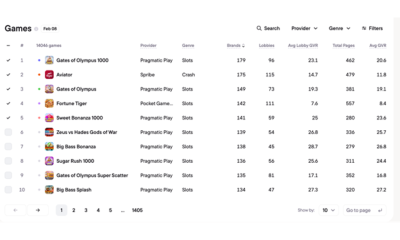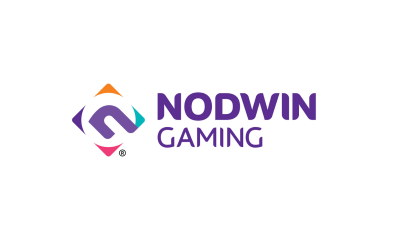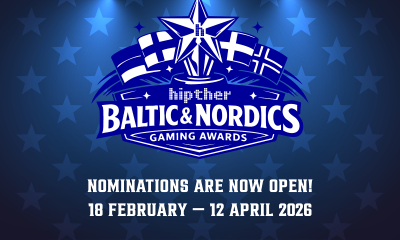Latin America
Mexico Gambling Market to Hit Valuation of US$ 40.64 Billion By 2033 | Astute Analytica

The Mexico gambling market was valued at US$ 11.37 billion in 2024 and is expected to reach US$ 40.64 billion by 2033, growing at a CAGR of 15.71% during the forecast period 2025–2033.
Mexico’s gambling market navigates a transformative legal landscape under the Federal Gaming and Raffles Law (LJRS), amended in 2021 and further refined in 2023 to address emerging challenges. As of 2024, the Dirección General de Juegos y Sorteos (DGOJ) mandates that operators maintain audited capital reserves of at least US$2 million and implement geoblocking tools to prevent cross-border betting—key measures tightening Mexico’s historically porous regulatory regime. State-level disparities complicate compliance: Jalisco imposes a 7% local tax on gross gaming revenue (GGR), while Quintana Roo exempts integrated resorts to boost tourism. The FATF’s 2023 audit highlighted AML weaknesses, prompting real-time transaction reporting for bets exceeding $2,500 via SEGOB’s centralized platform.
Despite progress, Mexico State and Guerrero remain hubs for illegal gambling dens in the Mexico gambling market, which SEGOB estimates siphon $450 million annually from licensed operators. Licensing delays (12–18 months) and hefty fines for noncompliance—up to $1.5 million for AML breaches—have consolidated market power among incumbents like Grupo Caliente and Codere. Looking ahead, federal rulings on cryptocurrency betting (pending Q4 2024) could redefine growth, as blockchain adoption accelerates among newer entrants like Betcris.
Key Findings in Mexico Gambling Market
| Market Forecast (2033) | US$ 40.64 Billion |
| CAGR | 15.71% |
| By Type | Casino (44.86%) |
| By Channel Type | Offline (53.97%) |
| By Payment method | Credits and Debits Cards (39.36%) |
| By End Users | Gambling Enthusiasts (65.10%) |
| Top Drivers |
|
| Top Trends |
|
| Top Challenges |
|
Land-Based Casinos: Adapting to Declining Demand and Tourism Shifts
Mexico’s 347 land-based casinos face structural challenges in the gambling market, with 2023 revenue dipping 5% year-over-year to $1.4 billion due to waning foot traffic and inflationary pressures. Urban centers like Mexico City and Monterrey—home to 45 and 32 casinos respectively—report an 8% decline in per-venue revenue, as labor costs surge by 12% and younger patrons migrate online. Luxury resorts buck the trend: Grupo Caliente’s Tijuana Hippodromo Casino saw VIP table game revenue climb 14% in 2023, driven by cross-border traffic from San Diego. Slot machines, still generating 78% of casino income, are evolving—Aristocrat’s “Skill-based Cash Claw” machines now feature mini-games targeting Gen Z.
Meanwhile, 14 small casinos in Baja California closed since 2022, unable to afford biometric entry systems priced at $120,000 annually per venue in the Mexico gambling market. Diversification strategies are emerging: 22% of ancillary revenue now comes from non-gaming events, such as sold-out concerts at CDMX’s Casino Palace. In coastal regions, hurricane-related closures in Quintana Roo (affecting 7 casinos in 2023) underscore climate risks, prompting operators to invest in $40 million insurance pools.
Online Gambling Boom: Mobile Adoption and Payment Innovations
Mexico’s online gambling market, projected to hit $1.4 billion in 2024, thrives on smartphone penetration (82%) and cheap 4G data plans ($8/month average). Players aged 18–34 dominate the market (71%), drawn to Bet365’s live-streamed Liga MX matches and Codere’s bonus-heavy app. Live dealer games surged 33% YoY, with Evolution Gaming reporting 500,000 monthly users for its Mexico-specific baccarat tables. Payment integration bridges financial gaps: OXXO’s Spin service processes 41% of deposits via cash vouchers, while Bitcoin adoption grows slowly (6% of transactions) despite regulatory ambiguity. However, cybersecurity remains a hurdle—DGOJ’s post-February 2024 DDoS attack now requires SSL encryption and two-hour breach disclosure windows. Regional nuances persist: northern states prefer sports betting (67% of online revenue), while central Mexico favors slots (58%). However, monopolistic practices loom—Spain’s Luckia controls 19% of the poker market through exclusivity deals with Mexican influencers like Andrés “Kraneo” Chaurand. With 5G networks expanding to 15 cities by Q3, latency issues during live bets (a 27% complaint rate) may soon ease.
Sports Betting Dominance: Soccer, Partnerships, and Integrity Risks
Sports betting fuels 39.51% of Mexico’s gambling market revenue, driven by soccer’s cultural ubiquity. Liga MX’s 2023 Apertura saw $2.1 billion wagered, spiking 18% during América vs. Chivas clashes. Strategic sponsorships deepen engagement: Sorare’s NFT fantasy league with Tigres UANL attracted 200,000 users in six months, while Betcris’ in-stadium kiosks at Estadio Azteca process $3 million per matchday. The 2026 World Cup looms large—DraftKings’ $52 million ad blitz targets Mexican expats in the U.S., leveraging dual-national stars like Julián Quiñones. Yet match-fixing persists: SEGOB’s Integrity Unit uncovered 12 third-division players manipulating yellow card stats for Costa Rican syndicates. Automation is mitigating risks—Sportradar’s AI flags irregular betting patterns in 92% of Liga MX matches—but oversight gaps linger in amateur leagues. Basketball and baseball are niche bright spots; the NBA’s Mexico City games drove a 27% YoY increase in prop bets, while the Sultanes de Monterrey’s partnership with FanDuel boosted baseball handle by $12 million in 2023.
Economic Contributions: Jobs, Tax Revenues, and Regional Disparities
Gambling sustains 148,000 direct jobs in Mexico gambling market, though wages lag—dealers earn $460/month on average, 23% below the living wage. Federally, the industry contributed $700 million in taxes in 2023, with casinos providing 58% via a 30% GGR levy. State-level disparities are stark: Nuevo León (24% of tax contributions) and Quintana Roo (21%) benefit from dense casino clusters, while Chiapas and Oaxaca account for <1%. Tourism multipliers are immense—Cancún’s casino visitors spend $290 daily versus $110 for others—but regional inequality widens: Mexico City captures 34% of revenue despite housing 13% of the population. IMCO estimates illegal operators drain $310 million in annual taxes, though SEGOB’s blockchain payment-tracker pilot (launched April 2024) slashed unlicensed revenue by 19% in three months. Unionization efforts are rising—30% of casino workers now belong to SUTTCLM, which negotiates healthcare benefits—but automation threatens roles: self-service betting terminals will replace 8,000 cashiers by 2026.
Tourism Integration: Casinos, Resorts, and Cross-Border Opportunities in Mexico Gambling Market
Integrated resorts drive Mexico’s $2.1 billion gambling-tourism nexus, blending gaming with luxury stays and golf. Grupo Vidanta’s Nuevo Vallarta property draws 500,000 annual visitors, 44% from the U.S., via packages bundling blackjack tournaments with yacht charters. Cruise tourism amplifies growth: Royal Caribbean’s Cozumel stopovers generate $180 million from casino excursions, targeting retirees with free-play credits. Cross-border betting is surging in gambling market of Mexico—23% of Texas bettors use VPNs to access Caliente’s U.S. college football markets—but peso volatility dampens foreign spending. Post-2023 devaluation, Californian visitors reduced average casino budgets by 14%, prompting operators to lure Argentinian high rollers with direct flights to Mérida. However, climate risks temper gains—Hurricane Otis disrupted 12 coastal casinos in 2023, costing $87 million in closures. For sustainability, SECTUR’s 2024 initiative promotes “golf-and-gaming” circuits in underdeveloped states like Aguascalientes, leveraging partnerships with PGA Tour Latinoamérica.
Technology Adoption: AI, Blockchain, and Virtual Reality Advances
Mexican operators in gambling market invested $230 million in tech upgrades in 2023, prioritizing AI tools for personalization and fraud detection. Codere’s chatbot resolves 83% of inquiries with a 4.7/5 satisfaction score, while Caliente’s machine learning model flags problem gamblers via behavioral cues like 3 AM logins. Virtual Reality casinos are expanding—Win Systems’ VR parlors in Guadalajara offer Meta Quest-powered blackjack, drawing 12,000 monthly users—but remain niche due to $600 headset costs. Blockchain adoption addresses transparency: 15% of licensees use Bitso for Bitcoin payouts, settling withdrawals in 22 minutes versus three days for banks. Cybersecurity gaps persist, evidenced by January 2024’s $4.5 million hack of Apuesta Total’s player database. Rural adoption lags—only 38% of Oaxaca’s casinos have 5G—but partnerships with Telcel aim to launch 150 5G gaming zones by 2025, slashing latency for esports bets.
Social Challenges: Addiction, Crime, and Regulatory Backlash
Problem gambling afflicts 2.3% of Mexican adults, per CONADIC’s 2024 survey—double the global average—with Sonora (4.1%) and Sinaloa (3.8%) hardest hit in the gambling market. SEGOB mandates operators fund 134 addiction clinics via 1% GGR contributions, yet only 17% of users self-exclude despite pop-up prompts. Cartels exploit weak oversight: 2023 saw $270 million laundered through Michoacán casinos, triggering federal raids and 11 venue closures. Public resistance grows—49% oppose new casinos per IEP polls—stalling projects in Querétaro and Puebla. Youth protections tightened in January: influencers like Rivers_GG face $25,000 fines for promoting betting on Twitch. Meanwhile, industry-funded harm reduction campaigns—like Caliente’s “Juego Responsable” school workshops—reach 200,000 teens annually. Balancing growth and ethics remains pivotal, as unchecked expansion risks replicating Spain’s 2010 addiction crisis, warns OECD’s 2024 Mexico report.
Mexico Gambling Market Key Players:
- Big Bola Casinos
- Caliente
- Codere México
- PlayCity Casino
- Strendus
- Betcris México
- Other Prominent Players
Key Segmentation:
By Type
- Sports
- Fixed Odds Sports Betting
- Pari-Mutuel Betting (Horse and Dog racing)
- In-Play/Live Betting
- Exchange Betting
- Spread Betting
- Others
- Casino
- Blackjack
- Baccarat
- Teen Patti
- Three Card Poker
- Four card poker
- Red Dog
- Others
- Lottery Games
- Scratch-offs
- Bingo
- Keno
- Electronic Gaming Machines
- Others
By Channel Type
- Offline
- Casinos
- Betting shops/halls
- Arcades
- Bookmakers
- Online
- Virtual Game
By Payment Method
- Credit and debit cards
- E-wallets
- Prepaid cards and Vouchers
- Bank Transfers
- Cryptocurrencies
- Others
By End User
- Gambling Enthusiast
- Dabblers
- Others
The post Mexico Gambling Market to Hit Valuation of US$ 40.64 Billion By 2033 | Astute Analytica appeared first on Gaming and Gambling Industry in the Americas.
apostadores
Brasil entra en la fase de endurecimiento post-legalización

Entre el 14 y el 19 de febrero, una secuencia de acontecimientos en Brasil señaló algo más relevante que una simple rutina regulatoria.
Es decir, el país ha entrado en el mismo ciclo político posterior a la legalización observado en jurisdicciones maduras del juego en Europa — la fase de impacto social.
Tras la apertura del mercado llega la expansión.
Tras la expansión llega el escrutinio.
Por lo tanto, Tribunales, Congreso y reguladores federales actúan ahora simultáneamente en torno a una preocupación compartida: exposición y mitigación del daño.
Para operadores e inversores, esta etapa históricamente redefine modelos de negocio más que los impuestos o las licencias.
Italia (2018), España (2020), Países Bajos (2022) y el debate de affordability en Reino Unido siguieron este patrón entre 12 y 36 meses después de la regulación.
Brasil ha llegado más rápido debido a su escala, visibilidad mediática y relevancia política.
Los tribunales se mueven primero: el juego responsable se vuelve arquitectura de interfaz
El impacto operativo más inmediato provino del poder judicial.
Un tribunal del estado de Goiás ordenó a 251 operadores licenciados mostrar advertencias de riesgo de adicción antes de realizar la apuesta.
Asimismo, el mensaje menciona ansiedad, depresión y sobreendeudamiento, transformando el juego responsable de una divulgación legal en una barrera funcional dentro de la experiencia de usuario.
Esto trasciende al propio estado.
El marco de apuestas es federal, pero la defensa del consumidor es estatal. Los fiscales suelen replicar precedentes entre jurisdicciones, lo que permite que las obligaciones se propaguen más rápido por litigio que por regulación.
Para los operadores surge una nueva categoría de riesgo: responsabilidad sobre la conversión.
Todo mecanismo diseñado para reducir la impulsividad afecta métricas comerciales.
El modelo de negocio debe conciliar fricción conductual y optimización de ingresos.
Este fenómeno replica lo visto en Europa, donde el diseño de interfaz — no la licencia — se convirtió en el principal campo regulatorio.
El Congreso apunta a la publicidad — y por lo tanto a la canalización
Mientras los tribunales abordaban la protección del jugador, el Senado avanzó en legislación para restringir publicidad en televisión, radio, prensa, redes sociales, patrocinios y promociones, con multas millonarias e incluso consecuencias sobre licencias.
En regulación del juego, el mayor riesgo rara vez es el impuesto.
Es la visibilidad.
El modelo brasileño depende de la canalización: migrar jugadores del mercado ilegal al regulado. La canalización requiere notoriedad, y la notoriedad requiere marketing.
Las implicaciones económicas son previsibles:
- aumento del costo de adquisición (CAC)
- reducción del ecosistema de afiliados
- menor diferenciación de marca
- mayor competitividad de operadores ilegales
Existen precedentes claros.
Tras el Decreto Dignidad en Italia colapsó la afiliación y creció el offshore. España vivió efectos similares tras el Real Decreto 958/2020.
Brasil enfrenta ahora la misma tensión estructural:
la política pública busca reducir exposición, mientras el mercado regulado necesita visibilidad controlada para existir.
La financiación del deporte se vuelve argumento político
El debate publicitario introdujo un argumento adicional: la financiación del deporte.
De esta forma, ejecutivos advierten que limitar marketing y competitividad de cuotas reducirá volumen de apuestas y por ende transferencias fiscales y patrocinio deportivo.
Esto invierte la narrativa original.
Durante la legalización, las apuestas financiaban el deporte.
Ahora el deporte se usa para frenar la sobre-restricción.
El debate pasó del optimismo fiscal al equilibrio económico, típico de mercados que pasan de expansión a estabilización.
El gobierno confirma supervisión prolongada
El Ministerio de Hacienda, a través de la Secretaría de Premios y Apuestas, publicó la agenda regulatoria 2026–2027 priorizando:
- revisión de licencias
- reglas para loterías
- procedimientos de fiscalización
- bloqueo de pagos
- herramientas de juego responsable
- control de influencers y afiliados
El cambio conceptual es clave. Brasil pasa de regular operadores a regular ecosistemas.
Plataformas, medios, agencias, afiliados y pagos se convierten en objetivos regulatorios.
Esto marca la transición de creación de mercado a supervisión de mercado — señal clásica de madurez regulatoria.
Más competencia mientras cae la libertad comercial
Al mismo tiempo que aumenta la regulación, existen más de 180 operadores autorizados.
Surge la paradoja típica: más competidores justo cuando disminuye la flexibilidad comercial.
O sea, el resultado suele ser consolidación.
Los pequeños dependen de adquisición agresiva y bonos — inviables bajo restricciones y compliance elevado. Los grandes con marca y medios absorben cuota.
El mercado crece, pero la viabilidad se reduce.
Cambio narrativo: de ingresos a riesgo social
El cambio principal es discursivo, no legal.
La legalización se centraba en impuestos y financiación deportiva.
Hoy el debate gira en torno a adicción, deuda y exposición juvenil.
La política sigue ciclos de percepción:
| Fase | Enfoque | Resultado |
| Apertura | Oportunidad económica | Expansión |
| Estabilización | Protección del consumidor | Restricción |
| Madurez | Minimización del daño | Control conductual |
Brasil ya se alinea en la segunda etapa.
Tribunales enfatizan salud mental, legisladores visibilidad y reguladores supervisión.
Esto suele preceder endurecimientos duraderos.
Qué significa para actores internacionales
Por supuesto, Brasil sigue siendo una de las mayores oportunidades globales.
Pero cambia la lógica operativa.
El mercado pasa de:
- crecimiento por adquisición → crecimiento por retención
- escala publicitaria → legitimidad de marca
- velocidad → resiliencia regulatoria
Muchos operadores interpretan esta fase como inestabilidad.
Históricamente es maduración.
Europa mostró que la rentabilidad sostenible llega después de esta adaptación estratégica.
Conclusión: la legitimidad reemplaza al acceso
Los eventos de mediados de febrero no crearon una regla única transformadora.
Crearon convergencia institucional.
Por ello, poder judicial, legislativo y ejecutivo reaccionan a la misma preocupación: el impacto social del juego.
La primera fase definió quién podía entrar.
La segunda definirá cómo operar.
La industria ya no negocia acceso.
Negocia legitimidad.
Y en mercados regulados, la legitimidad — más que la licencia — define la rentabilidad sostenible.
Betnacional lanza una plataforma de comunicación basada en la cultura del hincha en Brasil
Betnacional presentó una nueva plataforma de comunicación llamada “Bota essa paixão pra jogo” (“Pon esa pasión en juego”), con el objetivo de fortalecer la relevancia de la marca y el engagement entre los aficionados deportivos brasileños durante un periodo de alta atención global al fútbol.
Desarrollada en colaboración con la agencia creativa Galeria.ag, la plataforma se construye a partir de una comprensión cultural de cómo los brasileños viven el deporte — caracterizada por intensidad emocional, participación activa y una forma única y expresiva de alentar.
La campaña está prevista para desarrollarse durante el primer semestre de 2026.
Álvaro Garcia, Chief Marketing Officer de Flutter Brasil, explicó que la estrategia busca aprovechar deliberadamente la profunda presencia cultural del fútbol en el país, señalando que casi la mitad de la población ve al menos un partido por semana, dato que evidencia la relevancia cotidiana del deporte.
Acorde estudios internos de Betnacional, el 60% de los apostadores deportivos realiza apuestas tres o más veces por semana, cifra que asciende al 69% entre los usuarios que combinan apuestas deportivas con otros formatos de juego.
Estos insights de comportamiento guiaron la dirección creativa de la campaña.
La iniciativa incluye activaciones multicanal en televisión, plataformas digitales y formatos out-of-home (OOH), con piezas breves pensadas para funcionar tanto en medios tradicionales como en entornos sociales.
Por eso, el enfoque creativo refleja la cultura futbolística brasileña, combinando con frecuencia humor y narrativa emocional para retratar la pasión del hincha como una extensión natural de la vida cotidiana.
Según Ricardo Schreier, Head of Brand Creative & Insights de Flutter Brasil, la plataforma representa un “territorio fértil para construir narrativas” que traduzcan el comportamiento cultural en una expresión de marca consistente.
Además, la campaña también marca el primer gran trabajo de Galeria.ag como agencia líder tanto de Betnacional como de Betfair en Brasil — posición asumida a finales de 2025 dentro de la estrategia integrada de Flutter Brasil, que combina planificación, inteligencia de mercado y ejecución creativa.
The post Brasil entra en la fase de endurecimiento post-legalización appeared first on Americas iGaming & Sports Betting News.
advertising
Brazil enters the post-legalisation tightening phase

Between 14 and 19 February, a sequence of developments in Brazil signalled something more significant than regulatory routine.
The country has entered the same post-legalisation political cycle already observed across mature European gambling jurisdictions — the social impact phase.
After market opening comes expansion.
After expansion comes scrutiny.
Courts, Congress and federal regulators are now acting simultaneously around a shared concern: exposure and harm mitigation.
For operators and investors, this stage historically reshapes business models more than taxation or licensing ever did.
Italy (2018), Spain (2020), the Netherlands (2022) and the UK affordability debate all followed this pattern roughly 12–36 months after market regulation.
Brazil has reached it faster due to scale, media visibility and political salience.
Courts move first: responsible gambling becomes interface architecture
The most immediate operational impact came from the judiciary.
A state court in Goiás ordered 251 licensed operators to prominently display addiction-risk warnings before bet placement.
The mandatory message references anxiety, depression and over-indebtedness, effectively transforming responsible gambling messaging from compliance disclosure into a functional UX barrier.
This matters beyond the state itself.
Brazil’s gambling framework is federal, but consumer protection enforcement is state-driven. Public prosecutors frequently replicate precedents across jurisdictions, meaning obligations can propagate faster through litigation than through regulation.
For operators, this introduces a new risk category: conversion liability.
Any mechanism designed to reduce impulsive betting inherently affects conversion metrics.
The business model must therefore reconcile behavioural friction with revenue optimisation.
This mirrors developments seen in European markets where interface design — not licensing — became the primary regulatory battleground.
Congress targets advertising — and therefore channelisation
While courts addressed player protection, the Senate advanced legislation restricting betting advertising across television, radio, press, social media, sponsorships and promotional campaigns, with penalties including multimillion-dollar fines and potential licence consequences.
In gambling regulation, taxation rarely determines operator viability.
Visibility does.
Brazil’s regulatory logic depends on channelisation: migrating consumers from offshore operators to licensed platforms.
Channelisation requires awareness, and awareness requires marketing.
The economic implications are predictable:
- rising customer acquisition cost (CAC)
- shrinking affiliate ecosystems
- weaker brand differentiation
- improved competitiveness of illegal operators
This dynamic has precedent.
Following Italy’s Decreto Dignità advertising ban, affiliate activity collapsed and offshore presence strengthened.
Spain experienced similar effects among younger demographics after Royal Decree 958/2020.
Brazil now faces the same structural tension:
public policy seeks reduced exposure, while regulated markets require controlled visibility to function.
Sports financing becomes political leverage
The advertising debate has introduced a secondary policy argument: sports funding.
Industry executives warn that reduced marketing capacity and constrained odds competitiveness may lower betting volume and therefore tax transfers and sponsorship revenue to sports organisations.
This represents a narrative reversal.
During legalisation debates, betting was justified as a mechanism to finance sport.
Now sport is used as an argument against over-restriction.
The political discussion has shifted from fiscal optimism to economic trade-offs — a transition typical of markets moving from expansion to stabilisation.
Federal government confirms long-term supervision
The Ministry of Finance, through the Secretariat of Prizes and Betting, published its 2026–2027 regulatory agenda prioritising:
- revision of licensing criteria
- lottery operational rules
- enforcement and monitoring procedures
- payment blocking mechanisms
- responsible gambling tools
- oversight of influencers and affiliates
The conceptual shift is crucial.
Brazil is moving from regulating operators to regulating ecosystems.
Further, platforms, media partners, marketing agencies, affiliates and payment channels become enforcement targets.
This marks the transition from market creation to market supervision — a defining milestone in regulatory maturity.
Competition increases as commercial freedom narrows
At the same moment regulation tightens, the number of licensed operators exceeds roughly 180 platforms.
This produces a classic newly regulated market paradox:
More competitors entering precisely when commercial flexibility declines.
The usual outcome is consolidation.
Smaller operators depend on aggressive acquisition strategies and bonus-driven growth, both incompatible with advertising limits and rising compliance costs.
Larger operators with brand equity and media partnerships absorb market share.
Growth therefore continues — but viability narrows.
Narrative shift: from revenue opportunity to social risk
The most important change is rhetorical rather than legal.
Legalisation was framed around taxation, formalisation and sports funding.
Current public discourse focuses on addiction, indebtedness and youth exposure.
Public policy follows perception cycles:
| Phase | Dominant framing | Regulatory behaviour |
| Opening | Economic opportunity | Expansion |
| Stabilisation | Consumer protection | Restriction |
| Maturity | Harm minimisation | Behavioural control |
Basically, Brazilian institutions now align around the second stage.
Courts emphasise mental health, legislators visibility, regulators supervision.
Such alignment historically precedes durable regulatory tightening rather than temporary intervention.
What this means for international stakeholders
Brazil remains one of the largest global betting opportunities.
However, the operating logic is changing.
The market is transitioning from:
- acquisition-driven growth → retention-driven growth
- marketing scale → brand legitimacy
- speed → compliance resilience
International operators often interpret this phase as instability.
Historically, it signals maturation.
Across Europe, long-term profitability emerged only after this stage forced operators to adapt operational discipline, customer lifetime value strategies and media partnerships.
Conclusion: legitimacy replaces entry as the main barrier
The developments of mid-February did not introduce a single transformative rule.
They created institutional convergence.
Judiciary, legislature and executive authorities are reacting to the same concern: the social footprint of betting.
The first phase of Brazil’s regulated market determined who could enter.
The second will determine how they may operate.
The industry is no longer negotiating access.
It is negotiating legitimacy.
And in regulated gambling markets, legitimacy — more than licensing — ultimately defines sustainable profitability.
Betnacional launches culturally-driven communication platform in Brazil
Additionally, Betnacional has unveiled a new communication platform called “Bota essa paixão pra jogo” (“Put that passion into play”), aimed at strengthening brand relevance and engagement among Brazilian sports fans during a period of heightened global football attention.
Developed in partnership with creative agency Galeria.ag, the platform is built around a cultural understanding of how Brazilian fans experience sport — characterized by emotional intensity, active participation and a uniquely expressive approach to cheering.
The campaign is designed to run through the first half of 2026.
Alvaro Garcia, Chief Marketing Officer of Flutter Brazil, explained that the strategy deliberately taps into football’s deep cultural presence in Brazil, noting that nearly half of the population watches at least one match per week — a statistic that underscores the sport’s daily relevance.
According to internal Betnacional research, 60% of sports bettors place bets three or more times per week, with that figure rising to 69% among users who combine sports wagering with other betting formats. These behavioural insights helped guide the creative direction of the campaign.
The initiative includes multi-channel activations across TV, digital platforms and out-of-home (OOH) formats, with short creative pieces designed to resonate both in traditional media and social environments.
The campaign’s creative approach reflects Brazil’s football culture, often blending humor with emotional storytelling to portray fan passion as a natural extension of everyday life.
According to Ricardo Schreier, Head of Brand Creative & Insights at Flutter Brazil, the platform serves as a “fertile territory for building narratives” that creatively translate cultural behaviour into consistent brand expression.
This campaign also marks the first major work of Galeria.ag in its role as lead agency for both Betnacional and Betfair in Brazil — a position the agency assumed at the end of 2025 as part of Flutter Brazil’s integrated strategy combining planning, market intelligence and creative execution
The post Brazil enters the post-legalisation tightening phase appeared first on Americas iGaming & Sports Betting News.
Codere Online
Codere Online Launches iOS Poker App in Mexico, Advancing Its Multi‑Product Expansion Strategy

Codere Online Luxembourg, S.A. a leading online gaming operator in Spain and Latin America, today announced the launch of its new iOS Poker application in Mexico, reinforcing the Company’s strategic objective to provide customers with access to a complete suite of online gaming products. As part of this multi‑product roadmap, both Bingo and the Android Poker app will form the next steps in expanding the Company’s offering in the country.
Developed in partnership with Playtech, one of the world’s most established gaming technology providers, the new iOS Poker app integrates directly with Playtech’s player‑vs‑player (P2P) Poker network. This allows Mexican users to compete in real time with players across multiple operators, ensuring deeper liquidity, a more dynamic environment and a superior competitive experience.
Codere Online continues to observe strong demand for Poker in Mexico, with more than 1,300 unique active users per month already engaging with the vertical across existing channels, a clear indicator of the product’s relevance and potential as mobile availability expands.
“Launching the Poker app for iOS in Mexico is a key step in delivering on our commitment to offer customers all major online gaming categories,” said Alberto Telias, Chief Marketing Officer at Codere Online. “Poker has quickly emerged as a highly attractive vertical for our users, and through our partnership with Playtech, we are bringing them a premium, high‑liquidity platform that elevates their experience.”
The new app offers a stable and intuitive interface with access to cash tables, multi‑table tournaments, Sit & Go formats, and fast‑paced modes. It also incorporates Codere Online’s robust responsible gaming tools to ensure that customers can enjoy Poker in a safe and controlled environment.
“This release reflects our strategy to broaden our product offering and enhance the user experience across all key gaming verticals,” said Ran Licht, Head of Product at Codere Online. “Playtech’s P2P network enables us to deliver a feature‑rich Poker environment connected to a broader operator ecosystem, and we look forward to expanding our product suite with additional verticals currently in development.”
“We are proud to partner with Codere Online and bring our P2P Poker network to their players in Mexico through their new iOS app,” commented Marat Koss, Playtech Chief Interactive Gaming Officer. “Codere Online players will now boast access to one of the most liquid and competitive poker networks in the entire industry.
The post Codere Online Launches iOS Poker App in Mexico, Advancing Its Multi‑Product Expansion Strategy appeared first on Americas iGaming & Sports Betting News.
-

 ACMA6 days ago
ACMA6 days agoACMA Blocks More Illegal Online Gambling Websites
-

 Aurimas Šilys6 days ago
Aurimas Šilys6 days agoREEVO Partners with Betsson Lithuania
-

 CEO of GGBET UA Serhii Mishchenko5 days ago
CEO of GGBET UA Serhii Mishchenko5 days agoGGBET UA kicks off the “Keep it GG” promotional campaign
-

 Canada5 days ago
Canada5 days agoRivalry Corp. Announces Significant Reduction in Operations and Evaluation of Strategic Alternatives
-

 Latest News4 days ago
Latest News4 days agoTRUEiGTECH Unveils Enterprise-Grade Prediction Market Platform for Operators
-

 Central Europe6 days ago
Central Europe6 days agoNOVOMATIC Once Again Recognised as an “Austrian Leading Company”
-

 Acquisitions/Merger5 days ago
Acquisitions/Merger5 days agoBoonuspart Acquires Kasiino-boonus to Strengthen its Position in the Estonian iGaming Market
-

 Firecracker Frenzy™ Money Toad™5 days ago
Firecracker Frenzy™ Money Toad™5 days agoAncient fortune explodes to life in Greentube’s Firecracker Frenzy™: Money Toad™































